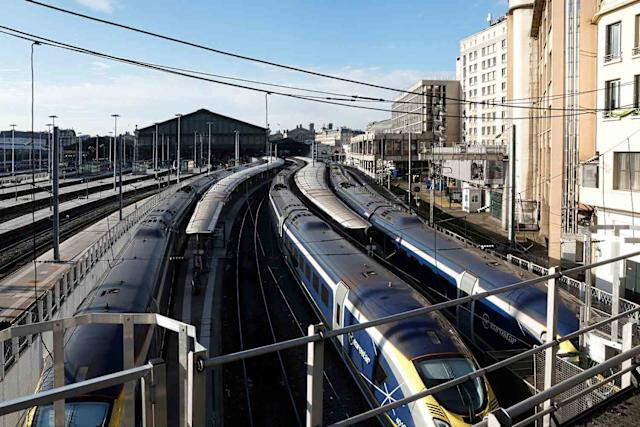
Paris, France – A World War II-era bomb discovered on railway tracks near Paris's Gare du Nord station has triggered widespread travel chaos, leaving thousands of passengers stranded in France and the United Kingdom. Eurostar, the high-speed rail operator connecting major European cities, was forced to cancel all services to and from its Paris hub on Friday, causing significant disruptions across the continent.
The unexploded bomb was unearthed during earth-moving work at approximately 4:00 AM (03:00 GMT) in the Seine-Saint-Denis region, just north of Paris, according to France's national rail operator, SNCF. The discovery prompted an immediate halt to all train traffic in and out of Gare du Nord, a critical transit hub serving international destinations including London, Brussels, Amsterdam, and numerous regional French cities.
"Mine clearance operations are currently underway by the French police, and services will only resume once the site has been declared safe," an SNCF spokesperson stated. "The safety of our passengers and staff is our utmost priority."
The discovery of such ordnance, while not uncommon in France due to the country's history in both World Wars, is particularly disruptive in a densely populated and heavily trafficked area like the Gare du Nord vicinity. The station, known as Europe's busiest rail hub, typically handles approximately 700,000 travelers daily.
French Transport Minister Philippe Tabarot warned that the disruption was expected to persist throughout the day, as bomb disposal experts worked to safely remove or neutralize the device. The intricate process of handling such explosives requires meticulous care and precision, causing extended delays.
The repercussions of the incident were felt far beyond Paris. In Brussels, trains destined for the French capital were canceled, leaving passengers scrambling to rearrange their travel plans. "There's no solution. We're going to call the hotel and stay one more day and change our train ticket," Michel Garrot, a retired Parisian visiting Brussels, told The Associated Press, highlighting the frustration and inconvenience faced by many.
At London's St. Pancras International station, Eurostar's UK hub, travelers faced similar disappointment. "We're looking up flights, but our options are limited," said passenger Lauren Romeo-Smith, illustrating the challenge of finding alternative transportation at short notice. Many passengers sought alternative routes, including flights and other train services, but found availability scarce.
Kasman Ibrahimi, a traveler in Paris intending to reach Cologne, Germany, via Gare du Nord, expressed his determination to find a different route. "I have to get to Cologne, so I will find another way," he told Reuters. "It's frustrating, but safety comes first."
The incident underscores the vulnerability of modern transportation networks to unforeseen events, even those stemming from historical conflicts. As authorities work to resolve the situation, thousands of travelers are left to navigate the logistical challenges and uncertainties caused by the discovery of a relic from a bygone era.
Additional Context:
Gare du Nord's Importance: The Gare du Nord is not only a major hub for Eurostar but also for regional and suburban trains, making it a critical part of Paris's and Europe's transportation infrastructure.
Historical Context: France continues to deal with unexploded ordnance from both World Wars, particularly in areas that saw heavy fighting.
Emergency Response: The immediate response by SNCF and French authorities highlights the importance of established protocols for handling such incidents.
Travel Disruption: The widespread impact of the cancellation of Eurostar services underscores the interconnectedness of European rail travel.
This revised article provides a more comprehensive overview of the situation, incorporating the necessary context and details to create a clear and informative news piece.
[Copyright (c) Global Economic Times. All Rights Reserved.]






























